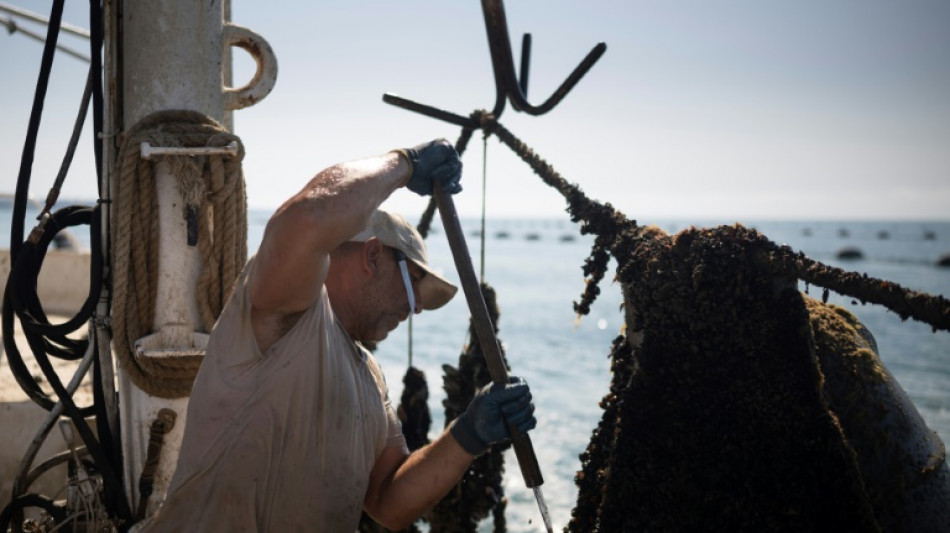
-
 Polish president critical of Germany to visit Berlin
Polish president critical of Germany to visit Berlin
-
Crawford shocks Alvarez for historic undisputed super middleweight world title

-
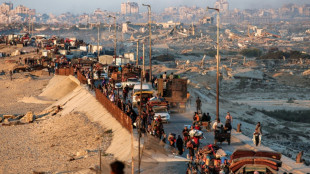 Rubio visits Israel in aftermath of Qatar strike
Rubio visits Israel in aftermath of Qatar strike
-
Bulgarian mussel farmers face risk, and chance, in hotter sea
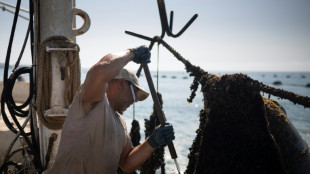
-
 New Nepal PM vows to follow protesters' demands to 'end corruption'
New Nepal PM vows to follow protesters' demands to 'end corruption'
-
Crawford shocks Alvarez to claim undisputed super middleweight world title

-
 Crawford shocks Alvarez to claim historic undisputed super middleweight world title
Crawford shocks Alvarez to claim historic undisputed super middleweight world title
-
Rubio begins Israel visit in aftermath of Qatar strike

-
 UK's largest lake 'dying' as algae blooms worsen
UK's largest lake 'dying' as algae blooms worsen
-
'So Long a Letter': Angele Diabang's Hollywood-defying Senegalese hit

-
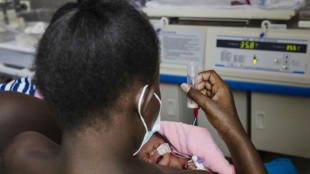 Kenya's only breastmilk bank, life-line for premature babies
Kenya's only breastmilk bank, life-line for premature babies
-
USA fall to Czechs and Aussies trail in Davis Cup qualifiers

-
 Indonesia leader in damage control, installs loyalists after protests
Indonesia leader in damage control, installs loyalists after protests
-
Charlotte beats Miami 3-0 as MLS win streak hits nine

-
 Jepchirchir wins marathon thriller, heartbreak for Ingebrigtsen
Jepchirchir wins marathon thriller, heartbreak for Ingebrigtsen
-
Duplantis, Warholm and strong 100m hurdles headline Day 3 of Tokyo worlds

-
 'Where's that spine?': All Blacks slammed after record loss
'Where's that spine?': All Blacks slammed after record loss
-
Lab-grown diamonds robbing southern Africa of riches
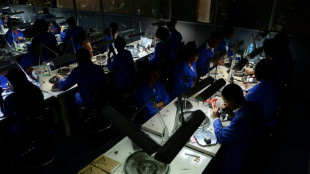
-
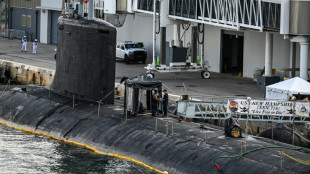 Australia to spend US$8 bn on nuclear sub shipyard facility
Australia to spend US$8 bn on nuclear sub shipyard facility
-
Wallabies 'dominated by disappointment' as All Blacks loom

-
 Rubio to begin Israel visit in aftermath of Qatar strike
Rubio to begin Israel visit in aftermath of Qatar strike
-
US Fed poised for first rate cut of 2025 as political tension mounts

-
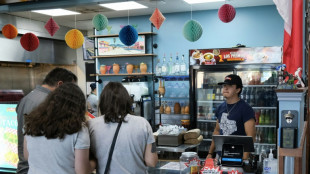 Immigration raids sapping business at Texas eateries
Immigration raids sapping business at Texas eateries
-
Griffin maintains PGA Procore lead with Koivun, Scheffler chasing

-
 'Adolescence' and 'The Studio' tipped to win big at TV's Emmys
'Adolescence' and 'The Studio' tipped to win big at TV's Emmys
-
Kenya's Jepchirchir outsprints Assefa for world marathon gold

-
 Injury-hit Ingebrigtsen fails to advance in world 1,500m
Injury-hit Ingebrigtsen fails to advance in world 1,500m
-
Brewers become first club to clinch MLB playoff berth

-
 Federal Legal Marijuana? MMJ's Billion Dollar Trajectory: We're Not Selling Marijuana, We're Capturing a Market
Federal Legal Marijuana? MMJ's Billion Dollar Trajectory: We're Not Selling Marijuana, We're Capturing a Market
-
Monaco squeeze past 10-man Auxerre to climb to third

-
 Former Aspiration exec denies Leonard had 'no-show' deal
Former Aspiration exec denies Leonard had 'no-show' deal
-
IndyCar drops bid for '26 Mexico race due to World Cup impact
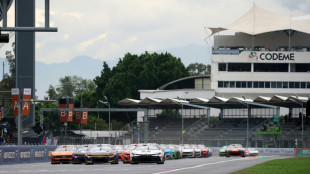
-
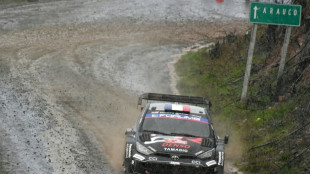 Ogier makes a splash at Rally of Chile
Ogier makes a splash at Rally of Chile
-
Arsenal spoil Ange return, Chelsea held by Brentford

-
 Chelsea blow chance to top Premier League at Brentford
Chelsea blow chance to top Premier League at Brentford
-
Atletico beat Villarreal for first Liga win

-
 Last-gasp Juve beat Inter to keep pace with leaders Napoli
Last-gasp Juve beat Inter to keep pace with leaders Napoli
-
England's Hull leads Jeeno by one at LPGA Queen City event
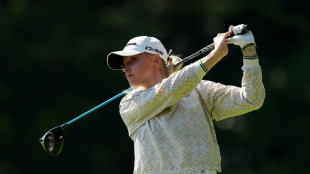
-
 Clashes with police after up to 150,000 gather at far-right UK rally
Clashes with police after up to 150,000 gather at far-right UK rally
-
Romania, Poland, scramble aircraft as drones strike Ukraine
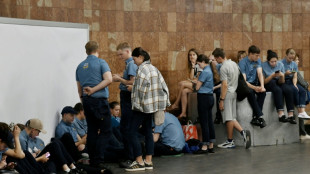
-
 Netanayhu says killing Hamas leaders is route to ending Gaza war
Netanayhu says killing Hamas leaders is route to ending Gaza war
-
New Zealand and Canada to face off in Women's Rugby World Cup semi-final

-
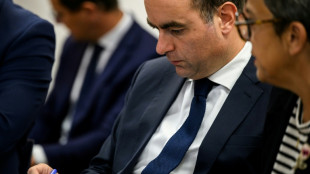 France's new PM courts the left a day after ratings downgrade
France's new PM courts the left a day after ratings downgrade
-
Last-gasp Juve beat Inter to maintain perfect Serie A start

-
 Kane hits brace as Bayern thump Hamburg again
Kane hits brace as Bayern thump Hamburg again
-
Arsenal spoil Ange return, Spurs win at West Ham

-
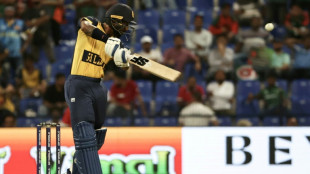 Sri Lanka cruise to six-wicket win over Bangladesh in Asia Cup T20
Sri Lanka cruise to six-wicket win over Bangladesh in Asia Cup T20
-
Spurs beat woeful West Ham to pile pressure on Potter

-
 Rubio says Qatar strike 'not going to change' US-Israel ties
Rubio says Qatar strike 'not going to change' US-Israel ties
-
Toulouse turn on Top 14 power despite sub-par performance


Bulgarian mussel farmers face risk, and chance, in hotter sea
Faced with rising Black Sea temperatures that suffocate his mussels, Bulgarian farmer Nayden Stanev has been forced to change his ways -- shifting his seeding schedule and harvesting at cooler depths.
Yet Stanev, a 56-year-old former marine commando, sees the fallout from climate change as both a threat and opportunity for his business.
As bad as it is for Bulgaria's mussel farmers, their peers in the Mediterranean Sea have had to deal with even higher water temperatures.
"We are better off," Stanev told AFP.
Though the Balkan EU member still trails far behind major Mediterranean mussel producers such as Spain and Italy, it has taken the lead in the Black Sea.
And it is less affected by marine heat waves, which have led to a sharp decline in Europe's mussel crop, according to experts.
But the warmer waters are still a threat to Black Sea mussel farmers.
"About 20 percent of the mussels didn't survive" this year, Stanev said gravely, as empty shells piled up on deck of his old diesel boat.
"Last year, it was a massacre -- 80 percent wiped out. The mussels literally suffocate in a sea that warms too fast," he added.
- 'Lasting change' -
Scientists say climate change is making marine heatwaves more frequent and powerful, and the Mediterranean region is warming faster than the global average.
In July, the average surface temperature of the Mediterranean Sea was 26.79C, the hottest ever for that month, according to research centre Mercator Ocean International.
During the same period, the average surface temperature in the Black Sea was 25.46C -- less than in the Mediterranean, though it is also warming.
"When temperatures approach or exceed about 26C -- a threshold associated with mass mussel mortalities -- for extended periods during peak market seasons, it creates disruptions in the supply chain," John Theodorou, an expert at the University of Patras in Greece, told AFP.
In the Black Sea, the surface temperature has risen by nearly two degrees in two years, according to Radoslava Bekova from the Institute of Oceanology at the Bulgarian Academy of Sciences.
"The sea is undergoing lasting changes," she told AFP.
She added prolonged warming periods, when the sea doesn't have time to cool down, weaken the mussels, making them more vulnerable to diseases.
- High demand -
Together with his six employees, Bulgaria pioneer Stanev is on deck at dawn to harvest and deliver his mussels, with the season reaching its peak at the end of August.
He set up his business more than 20 years ago in the bay of Cape Kaliakra, a prime location protected from currents.
His phone ringing incessantly, Stanev jots down the orders on a small notebook.
On this day, he has to deliver no fewer than 10 tonnes of mussels to cater to the demand of hundreds of restaurants and vendors in Bulgaria and neighbouring Romania.
After a short trip from shore, the crew reaches the 200-hectare mussel farm.
Black buoys float on the surface, with long tubular nets holding the shells attached to them.
The men work in silence with synchronised gestures: one pulls the nets out of the water, another cleans them and a third sorts the shells.
Mussel bags pile up, each containing about 800 kilogrammes, as cormorants scout for leftovers.
When the boat returns to the quay in the early afternoon, several refrigerated trucks are already waiting, along with villagers with empty buckets, eager to buy fresh mussels for their families.
While global production has continued to grow, it has been declining in the EU since 2018, according to data from the European Market Observatory for Fisheries and Aquaculture Products (EUMOFA).
About 356,500 tonnes of mussels were harvested in the EU in 2023 -- about 21 percent fewer than in 2018, according to EUMOFA data.
Spain led with 155,700 tonnes followed by Italy with 57,279 tonnes -- by comparison, Bulgaria accounted for about 1,100 tonnes.
While European production fell over that period, their value increased almost 50 percent, standing at roughly 463 million euros in 2023.
"This value gap has created opportunities for Black Sea mussel production," Theodorou said.
J.Oliveira--AMWN